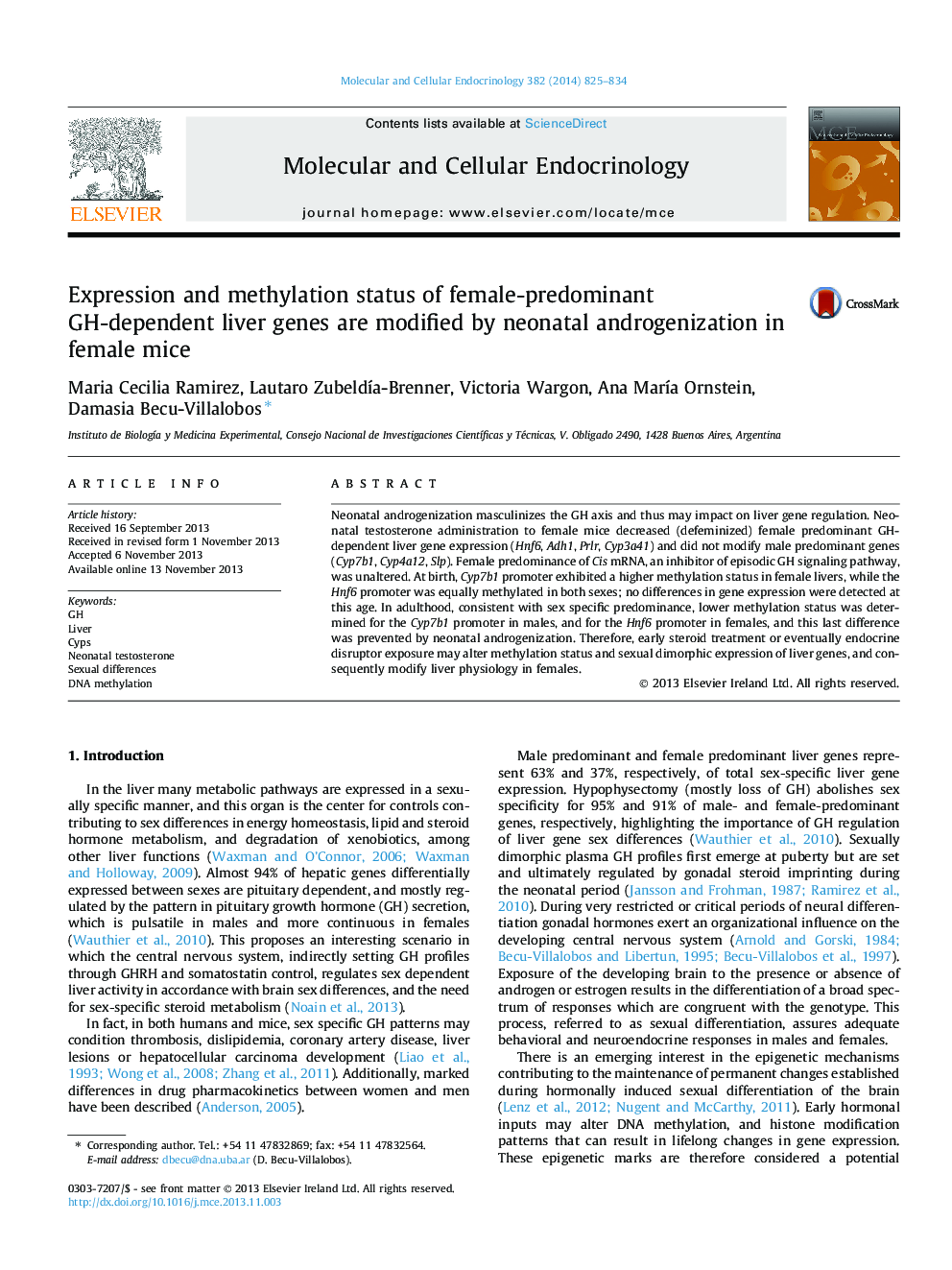| Article ID | Journal | Published Year | Pages | File Type |
|---|---|---|---|---|
| 10956186 | Molecular and Cellular Endocrinology | 2014 | 10 Pages |
Abstract
Neonatal androgenization masculinizes the GH axis and thus may impact on liver gene regulation. Neonatal testosterone administration to female mice decreased (defeminized) female predominant GH-dependent liver gene expression (Hnf6, Adh1, Prlr, Cyp3a41) and did not modify male predominant genes (Cyp7b1, Cyp4a12, Slp). Female predominance of Cis mRNA, an inhibitor of episodic GH signaling pathway, was unaltered. At birth, Cyp7b1 promoter exhibited a higher methylation status in female livers, while the Hnf6 promoter was equally methylated in both sexes; no differences in gene expression were detected at this age. In adulthood, consistent with sex specific predominance, lower methylation status was determined for the Cyp7b1 promoter in males, and for the Hnf6 promoter in females, and this last difference was prevented by neonatal androgenization. Therefore, early steroid treatment or eventually endocrine disruptor exposure may alter methylation status and sexual dimorphic expression of liver genes, and consequently modify liver physiology in females.
Related Topics
Life Sciences
Biochemistry, Genetics and Molecular Biology
Cell Biology
Authors
Maria Cecilia Ramirez, Lautaro ZubeldÃa-Brenner, Victoria Wargon, Ana MarÃa Ornstein, Damasia Becu-Villalobos,
